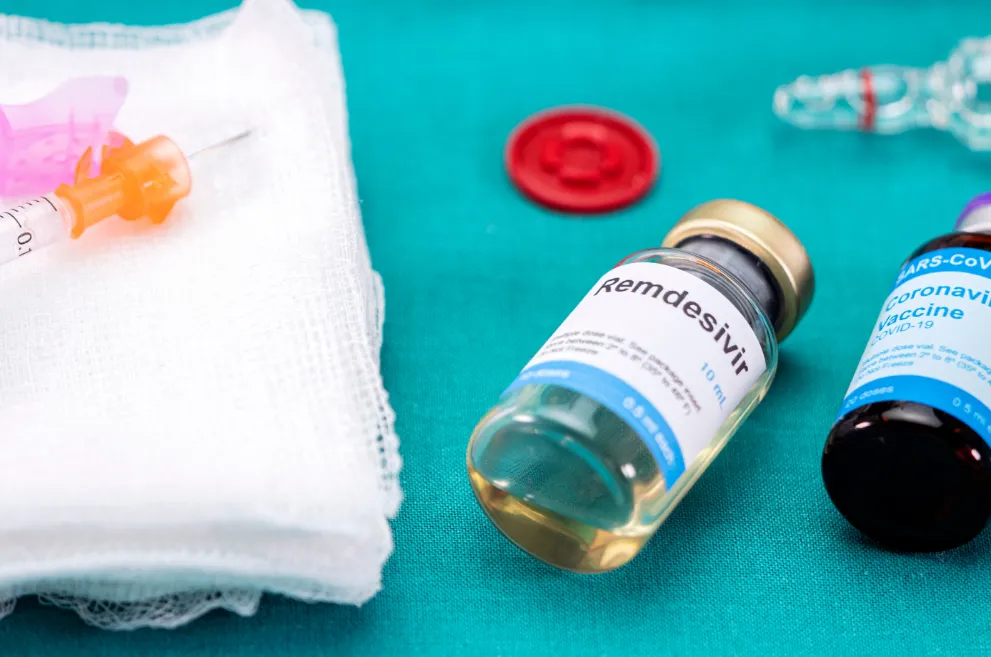Written and medically reviewed by Dorcas Morak, PharmD
A study presented at the 2023 European Congress of Clinical Microbiology & Infectious Diseases in Copenhagen suggests that early Veklury (remdesivir) administration reduces hospital readmission risk by up to 16% among immunocompromised patients with COVID-19. The study focused on patients who received remdesivir during their hospital stay and compared them to a matched comparator group. Early administration of the drugs also decreased mortality rates and COVID-19 disease severity among immunocompromised people.These studies examined data from over 800 hospitals across the United States, involving more than 500,000 patients, aiming to understand patient outcomes as the COVID-19 landscape evolves. The study findings suggest that early treatment with remdesivir provides substantial benefits, potentially improving the care of patients who are especially vulnerable, such as those with weakened immune systems. The results underline the value of comprehensive, real-world research to evaluate the effectiveness of treatments in the continually evolving context of COVID-19 management.
What is Remdesivir?
Remdesivir is an antiviral medication that was developed by Gilead Sciences. It was originally designed to treat Ebola virus infections but later showed potential against other viral diseases, including coronaviruses. Remdesivir gained significant attention during the COVID-19 pandemic.
The medication works by inhibiting an enzyme called RNA polymerase, which is necessary for the replication of certain viruses. By interfering with the viral replication process, Remdesivir can help reduce the severity of the infection and improve recovery outcomes.
What are the indications of Remdesivir?
Remdesivir is recommended for the treatment of coronavirus disease in hospitalized patients. Additionally, it may be prescribed for COVID-19 patients who are not hospitalized but have a higher risk of experiencing complications due to factors such as older age, obesity, or existing medical conditions.
How should Remdesivir be used?
Remdesivir comes in two forms: a liquid solution and a powder for infusion. The powder needs to be mixed with water and administered gradually through the veins over a period of 30 to 120 minutes by a healthcare professional in a hospital environment. In the case of hospitalized patients, it is typically given once daily for a duration of 5 to 10 days. However, for mild to moderate COVID-19 cases in non-hospitalized individuals, treatment should commence within seven days of the initial symptoms and involve a once-daily administration for three consecutive days
What special precautions should I take?
Before receiving remdesivir, it is important to inform your doctor and pharmacist about any allergies, specifically to remdesivir or other medications. Additionally, make sure to disclose all prescription and non-prescription medications and any vitamins, nutritional supplements, or herbal products you are currently taking. This information is crucial as there could be potential interactions that may lead to severe consequences. Lastly, it is vital to communicate any history of liver or kidney disease, current pregnancy or plans to become pregnant, and breastfeeding status to your doctor.
In conclusion, the findings demonstrate reduced hospital readmission risk, decreased mortality rates, and improved disease severity, emphasizing the importance of timely treatment in improving patient outcomes.
















